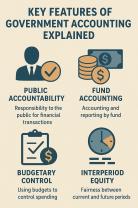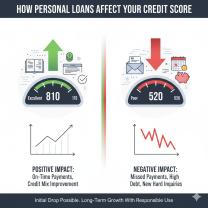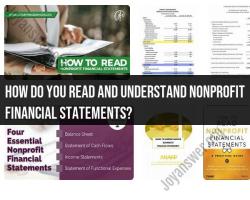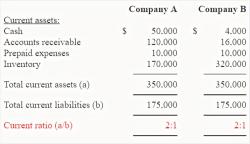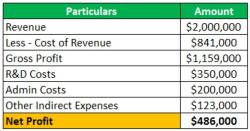How to get the lowest interest rate on student loans?
Securing the lowest interest rate on student loans is a key financial strategy to minimize the overall cost of education. Here are some steps you can take to increase your chances of getting a low interest rate on student loans:
Maintain a Strong Credit Score:
- A good credit score is one of the primary factors that lenders consider when determining interest rates. Make timely payments on all your bills and debts to maintain or improve your credit score.
Check Your Credit Report:
- Regularly check your credit report for inaccuracies. Dispute any errors you find to ensure that your credit report accurately reflects your financial history.
Shop Around and Compare Lenders:
- Different lenders may offer varying interest rates and terms. Shop around and compare offers from multiple lenders, including banks, credit unions, and online lenders. Use online comparison tools to simplify the process.
Consider Federal Student Loans First:
- Federal student loans typically have fixed interest rates set by the government. Before exploring private loans, maximize your eligibility for federal student loans, which may offer more favorable terms and borrower protections.
Apply with a Creditworthy Co-Signer:
- If you have a limited credit history or a lower credit score, applying for a student loan with a creditworthy co-signer can help you qualify for a lower interest rate. The co-signer's creditworthiness can positively impact the loan terms.
Choose a Fixed Interest Rate:
- Consider opting for a fixed interest rate rather than a variable rate. Fixed rates remain constant throughout the loan term, providing predictability and protection against interest rate increases.
Demonstrate Stable Income and Employment:
- Lenders may consider your income and employment stability when determining your interest rate. Providing evidence of a steady income and secure employment can improve your application.
Take Advantage of Auto-Pay Discounts:
- Many lenders offer interest rate discounts if you enroll in automatic payments. Setting up auto-pay can not only save you money but also reduce the risk of missing payments.
Consider Loan Term and Repayment Options:
- Longer loan terms may come with higher interest rates. Consider your budget and financial goals when choosing a loan term. Additionally, explore repayment options such as income-driven repayment plans if available.
Negotiate or Refinance:
- After graduation and establishing a positive credit history, consider refinancing your student loans. You may be able to secure a lower interest rate with a private lender. Additionally, some lenders may be open to negotiating rates, especially if you have a strong credit profile.
Continue Education:
- Pursuing additional education and obtaining advanced degrees may open up opportunities for lower interest rates on student loans. Some lenders offer discounts for borrowers with graduate degrees.
Maintain Good Financial Habits:
- Consistently practice good financial habits, such as making timely payments on all debts and keeping your credit utilization low. Responsible financial behavior can positively impact your creditworthiness.
Remember that interest rates can vary based on factors such as creditworthiness, the lender's policies, and market conditions. It's important to thoroughly research and compare loan offers before making a decision. Additionally, read the terms and conditions carefully to understand all aspects of the loan agreement.
Financial Savvy: Conquering the Student Loan Interest Monster
Student loans, while necessary for many, can become a burden weighed down by hefty interest rates. But fear not, savvy borrowers! Let's explore strategies to minimize interest costs and conquer the financial beast:
1. Securing the Lowest Interest Rate:
- Early Bird Gets the Worm: Start researching and comparing rates even before graduation. Applying pre-emptively with good credit can secure lower rates.
- Shop Around, Don't Settle: Don't just rely on your current lender. Explore online lenders, banks, credit unions, and even consider refinancing existing loans for better rates.
- Credit Score is King: Maintain a healthy credit score through responsible credit card usage and timely bill payments. A higher score unlocks lower interest rates.
- Cosigner Consideration: If your credit is young or thin, consider a cosigner with excellent credit to improve your approval chances and potentially lower rates.
- Negotiate, Negotiate, Negotiate: Don't be afraid to negotiate your rate with your lender. Present your research and comparison offers to gain leverage.
2. Minimizing Interest Costs:
- Repay More Than Minimum: Even small increases in your monthly payment can significantly reduce accrued interest over the loan term.
- Target High-Interest Loans First: Prioritize paying off loans with the highest interest rates first, using strategies like the avalanche method.
- Beware of Deferment and Forbearance: While temporary relief options, these can extend your loan term and ultimately increase total interest paid.
- Consider Refinancing: If interest rates have dropped since you originally borrowed, refinancing existing loans to a lower rate can save you a bundle.
- Explore Loan Forgiveness Programs: Depending on your career path and loan type, programs like Public Service Loan Forgiveness or income-driven repayment plans can offer significant long-term savings.
3. Navigating the Landscape:
- Know Your Rates: Understand the different types of interest rates (fixed vs. variable) and their implications for long-term cost.
- Beware of Fees: Some lenders charge origination fees, prepayment penalties, and other hidden costs. Factor these into your overall comparison.
- Read the Fine Print: Carefully review loan terms and conditions before signing. Understand grace periods, repayment options, and potential late fees.
- Stay Informed: Keep track of changes in interest rates and loan programs. Look for opportunities to adjust your strategy and take advantage of better deals.
- Seek Expert Advice: Consult with a financial advisor or student loan counselor for personalized guidance and navigating complex decisions.
Remember, conquering student loan interest requires research, proactive planning, and smart financial choices. By implementing these strategies, you can minimize the financial burden and pave the way towards a future free from the crippling grip of debt. So, arm yourself with knowledge, negotiate like a pro, and watch those interest rates shrink!






